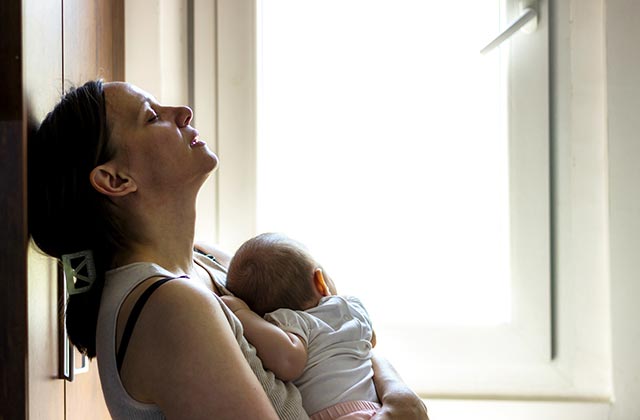After childbirth, mothers may experience severe mood swings, otherwise called “the baby blues”. About 80% of mothers are affected by these intense mood shifts, irritation, anxiety, and depression. These are due to the high hormonal changes that women experience in their bodies after childbirth. These changes can lead to having a post-partum disorder if symptoms are reoccurring for more than a couple of weeks and months.
In Canada, almost 25 percent of mothers are reported to have symptoms of postpartum depression or anxiety disorder.
In the first year after giving birth, signs of depression and anxiety may occur and may be experienced by women. Do you feel sadness and fatigue? Do you also worry too much? These are some symptoms of postpartum depression. These emotions and feelings are more intense than that of just having “the baby blues”, and may last longer. Who is more prone to postpartum depression and pregnancy-related anxiety? According to reports, expecting females within the age bracket of 25 to 30 are more likely to encounter postpartum depression. Families or spouses of recently pregnant women within the age-group must be vigilant in looking out for the symptoms.
Types of Post-partum Disorders and Their Symptoms
Having a postpartum disorder does not mean that it is just limited to experiencing anxiety or depression. There are several other types of post-partum disorder. Here are the four types of post-partum disorder and their symptoms to know if you are experiencing them.
- Postpartum Depression
Postpartum depression or called PPD is a mood disorder that mothers experience after giving birth. It is having extreme feelings of sadness, exhaustion, and anxiety that affect the mother’s ability to care for her baby, for herself, and others.
Unsurprisingly, symptoms of postpartum depression are similar to that of clinical depression. Some of these symptoms include the feeling of hopelessness and emptiness, irritability, exhaustion, anxiousness, and guilt. It also becomes challenging to concentrate and remember things compared to before having the baby. One can also experience having suicidal thoughts and even try to attempt doing so. Body aches, cramps, bloating, headaches, breast tenderness, and other digestive issues can be experienced. Having severe mood swings? How about having a difficult time sleeping? Are you also feeling panic attacks? These are also considered signs of postpartum depression.
These symptoms usually begin in the first four weeks after childbirth as well as in the late third trimester of the pregnancy just before childbirth.
- Postpartum Post-Traumatic Stress Disorder
This type of disorder is PTSD that is connected to pregnancy. After childbirth, about nine percent of women experience postpartum post-traumatic stress disorder. This condition is developed when a traumatic event takes place before, during, or after birth. This usually occurs when the mother experiences complications in her pregnancy. Due to this, the mother may suffer from flashbacks and memories when exposed to things that remind her of the traumatic experience.
- Postpartum Obsessive-Compulsive Disorder
This type of disorder is one of the most misunderstood prenatal disorders. Repetitive thoughts and images are seen and experienced by women who have OCD. This can be a frightening experience for most women, but these images and thoughts are not delusions but are caused by anxiety. Some of the symptoms of having postpartum obsessive-compulsive disorder include obsessions or having intrusive thoughts that are repetitive, upsetting, and persistent images that are related to the baby. Compulsion is also a symptom where the mother does repetitive things like cleaning, checking, or counting things over and over again.
- Postpartum Bipolar Disorder
Otherwise called Peripartum Bipolar Disorder is the tendency to having mood episodes like depression, mania, or hypomania that may begin during pregnancy or after childbirth. Recognizing bipolar disorder in women is important. Consulting experts and professionals for mental health are important to begin treatment. Some of these treatments include evidence-based therapy, bright light therapy, and appropriate medication to treat bipolar disorder.
The postpartum disorder can become critical for the mother and the child. It is important for the mother to be physically, mentally, and emotionally stable to properly take care of the baby. The baby can also be affected by the mood swings of the mother and can cause the child to be stressed out and irritable at the same time with the mother. Seeking out help from psychiatrists and mental health professionals will bring a better understanding for the mother on how to properly handle the symptoms that they are experiencing and to let them know that some of these symptoms are normal to have after childbirth to prevent guilt from building up.These types of postpartum disorders are only temporary and they are treatable with the right professional help and therapies. Are you feeling most of these symptoms? Do you know someone who might experience these things? If your answers to both questions are yes, you may consult an online doctor in BC or anywhere in Canada. Postpartum disorders are treatable with online consultations with specialized professionals in the field of mental health and prenatal doctors. Click here for more info.
